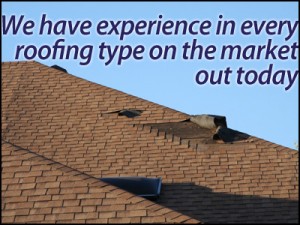Commercial Roof Maintenance Services in Toronto
Commercial roof maintenance follows the same pattern as regular flat roof maintenance. We begin by deploying an inspector to go through a checklist of the various common problems that commercial roofing systems face. Popular commercial systems include:
- Synthetic single-ply: TPO, EPDM, PVC.
- Built-up roofing (BUR), also called tar and gravel.

We have provided you below with general guidelines in case your site manager finds any signs indicating that your roof requires repairs or maintenance.
The first step is to perform a visual check “by eye” of the general surface conditions and shape of the roof:
- Loss of protective coatings.
- Stained surfaces.
- Standing water.
- Deteriorated or cracked coatings and sealants.
In the case of ballasted systems, high dirt levels, roof debris, and “shaling” are causal factors or contributors to membrane puncturing.
The next critical section to inspect is the roof membrane, which is responsible for weatherproofing. In BUR systems, there are multiple felt layers between hot asphalt or tar pitch. While this offers redundancy, which is beneficial insofar as weatherproofing, there are more opportunities for deficiencies, such as:
- Entrapped moisture.
- Fish-mouthing.
- Blistering caused by entrapped gas or air.
Single-ply systems (TPO, EPDM, PVC) are only afforded one layer of protection. The following are deficiencies to watch out for:
- Open lap seams.
- Membrane shrinkage (EPDM).
- Plasticizer migration causing brittleness in TPO and PVC.
- Fastener backout and punctures.
Other deficiencies in commercial roofing systems arise from the initial installation. Perimeter edges, copings, flashing, counterflashing, and area dividers require extra attention, as they can pose serious hazards despite often having easy solutions to address the deficiency. Flashings should especially be checked for punctures, blisters, and tear-off leading to open laps.
Commercial units often have drain systems and scuppers, and sometimes industrial-tier gutters, which should be inspected with care. If debris has entered the system or there is a plumbing issue, it could mean a halt of operations due to significant water ingress into the building, or significant moisture buildup in the roof assembly. As a result, your bottom line is sacrificed for trying to save in the very short-term by delaying regular maintenance for your roof. Clear signs of improper drainage include standing or ponded water on a low-slope or flat roof.
Any debris that can be removed from drains should be done in advance, and the inspector should leave a mark the location of the drain so that our technicians have easy access. Strainers and bolts should also be tightened, as well as flashing and sealants.
If you are a low-slope roof owner, the slope should be no less than one inch per square foot. Improper water termination moving away from the roof indicates that the roof may require a re-sloping.
Call our expert technicians if you have any specific questions about roof maintenance. Often, business owners will spend money where it is not required, mistaking one problem for another. For example, water entering the building may have just been a matter of improper drainage, rather than a problem warranting a tear-off of the system.



